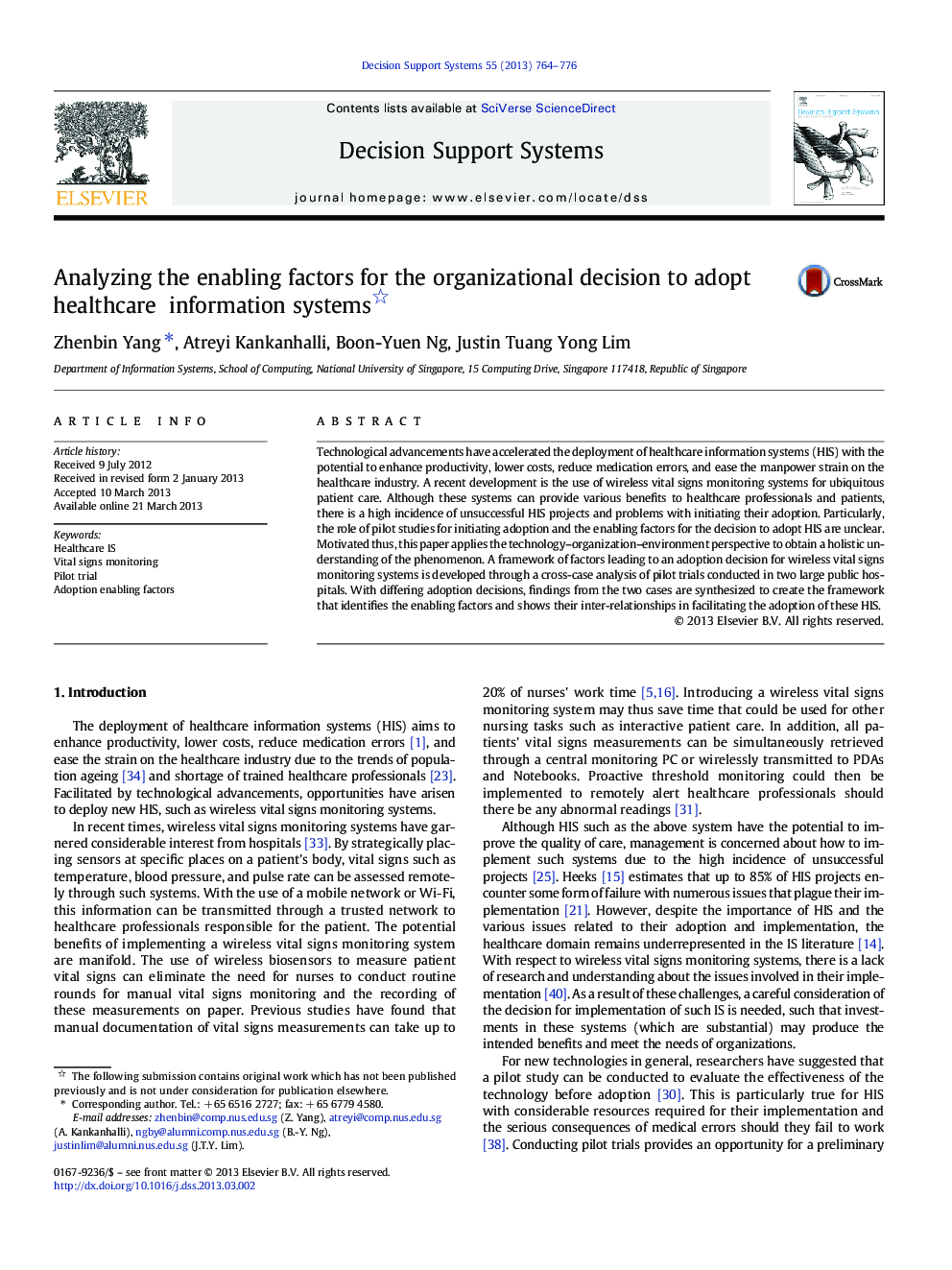| Article ID | Journal | Published Year | Pages | File Type |
|---|---|---|---|---|
| 552066 | Decision Support Systems | 2013 | 13 Pages |
•We identify factors affecting the organization adoption of healthcare IS.•We developed a framework to show the inter-relationship among factors identified.•Awareness and trigger type could affect organizational adoption decision outcomes.•Besides resource availability, shared contribution among stakeholders is essential.
Technological advancements have accelerated the deployment of healthcare information systems (HIS) with the potential to enhance productivity, lower costs, reduce medication errors, and ease the manpower strain on the healthcare industry. A recent development is the use of wireless vital signs monitoring systems for ubiquitous patient care. Although these systems can provide various benefits to healthcare professionals and patients, there is a high incidence of unsuccessful HIS projects and problems with initiating their adoption. Particularly, the role of pilot studies for initiating adoption and the enabling factors for the decision to adopt HIS are unclear. Motivated thus, this paper applies the technology–organization–environment perspective to obtain a holistic understanding of the phenomenon. A framework of factors leading to an adoption decision for wireless vital signs monitoring systems is developed through a cross-case analysis of pilot trials conducted in two large public hospitals. With differing adoption decisions, findings from the two cases are synthesized to create the framework that identifies the enabling factors and shows their inter-relationships in facilitating the adoption of these HIS.
